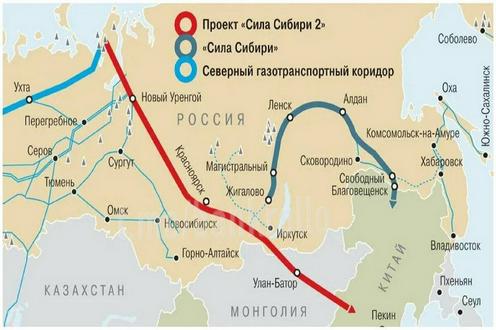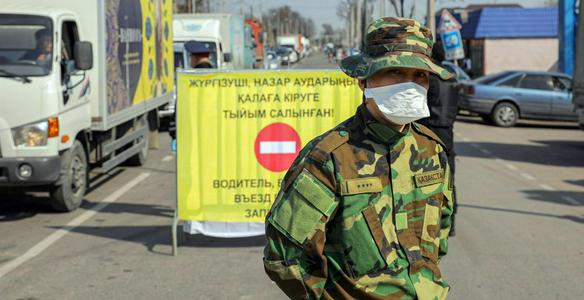Today’s agreements in Beijing between Gazprom and China’s CNPC on the construction of the Power of Siberia-2 pipeline could disrupt Kazakhstan’s plans to supply gas to its northeast with Russian fuel. The concern was voiced by Kazakh journalist Oleg Chervinsky in his Telegram channel Oil and Gas of Kazakhstan. Facts and Commentary.
On September 2, CNPC and Gazprom signed a legally binding memorandum on building Power of Siberia-2 and the Soyuz Vostok transit pipeline through Mongolia. Under the deal, Russian gas will be supplied to China for 30 years, with annual volumes of 50 billion cubic meters. The two sides also agreed to expand deliveries via the existing Power of Siberia pipeline from 38 to 44 billion cubic meters per year, and through the Eastern Route from 10 to 12 billion cubic meters.
According to Chervinsky, this eliminates the need for Russia to build a pipeline to China via Kazakhstan—a route that was supposed to enable the gasification of Kazakhstan’s northeastern regions. “The only option left is to implement phases II and III of the Saryarka pipeline, but there is neither funding nor sufficient gas for that,” the journalist added.
Talk of a Russia-to-China gas pipeline through Kazakhstan first surfaced last year. Negotiations on Power of Siberia-2 had already been under way for several years, but the two sides struggled to agree on gas prices and supply volumes. Speaking last fall at the forum Growth Points: Russia and China — Mutually Beneficial Cooperation, Russian Deputy Prime Minister Alexander Novak said the project was in its early stages. At the time, reports suggested the pipeline could have a capacity of up to 35 billion cubic meters per year.
In February this year, the Russian government issued an order to build a trunk pipeline to supply fuel to northern and northeastern regions of Kazakhstan.










